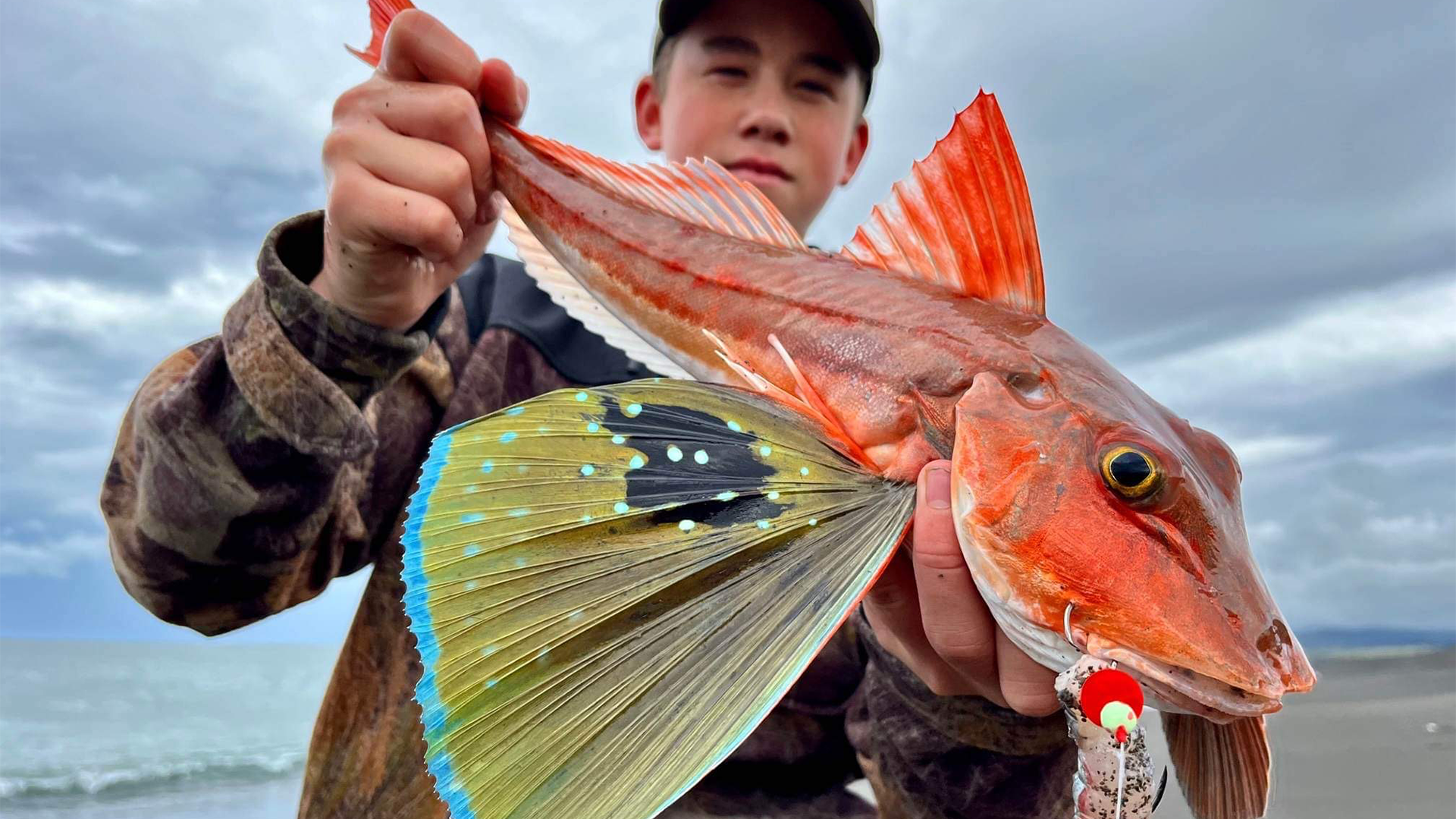The Hookup: J-hooks and Circle Hooks Compared
When it comes to bait fishing in New Zealand waters, choosing the right hook shape (and brand) can make all the difference in your catch rate and can often be the decider between having a successful day and a raging disappointment of a day.
As Kiwi’s we love a bit of bait fishing, and as a discerning angler, you've likely heard of both J-hooks (also called Octopus Beaks and Suicide hooks), and circle hooks. Each hook type has its own unique advantages and disadvantages, and although they’re both used in a similar way, it pays to know the differences to make the most of each hook’s design characteristics.
The Octopus Beak is BKK’s take on the classic J-Hook style of bait hook.
J-HOOKS / OCTOPUS BEAKS / SUICIDE HOOKS
Fishermen can be a creative bunch, but apparently not when naming hooks, because as the name might suggest, J-hooks have a characteristic ‘J’ shaped design. This shape means they are incredibly versatile and can be used for a wide range of baits and techniques. They’re particularly effective for species such as Snapper, Gurnard, Trevally, and Kingfish, and their ability to set quickly and firmly makes them ideal for hooking a fish with minimal effort or skill - they just kinda… stick in.
This ease of ‘just sticking in’ (not the technical term) is also one of the downsides of J-hooks, as it introduces the risk of gut hooking or foul hooking, which can be harmful to the fish and make it difficult to release them back into the water unharmed. When used as a keeper hook on surfcasting rigs, this can be favourable as it allows you to pick up a fish you may have otherwise missed.
Circle Hooks
Circle hooks, on the other hand, have a circular shape. They also carry a sharp, barbed point that faces inward toward the shank. When a fish takes the bait and swims away, the hook smoothly rotates in the fish's mouth and catches on the corner of the jaw, removing the need to ‘strike’ the rod, and reducing the likelihood of gut hooking.
The humble circle hook features an inward facing hook point, which allows the hook to set by rolling into the fish’s mouth, reducing foul hooking and improving the chances of a successful release.
Because of this, circle hooks are well-suited for catch-and-release fishing, as they reduce the amount of harm that is done to the fish during the hookset. The larger sizes are also ideal for targeting bigger fish that put up a harder fight. With that turned-in hook point it’s also arguable that the fish will have a harder time shaking the hook loose in moments of slack line.
It's worth noting that in some scenarios circle hooks may not set as quickly or as deeply as J-hooks, which can make it a tiny bit more challenging to hook certain types of fish, especially those with bony mouths or tough jaws. In these situations, you need a very sharp hook that can penetrate deeply with little force. This is why our Heavy Circles tend to deliver a more consistent hook up rate compared to others - they’re sharp as heck and stick deep!
When it comes to technical details, J-hooks and Circle hooks are available in a range of sizes to suit your target and preferences and can come with a either straight or offset point. Our Heavy Circles and Octopus Beak hooks are all offset style, which also aids in an improved hook up rate. An angled eye can help to position the hook correctly when loading, acting like a lever to really wedge that hook point in deep.
Which to Choose?
To put it simply, the choice between J-hooks and circle hooks depends on your specific fishing needs and the species you're targeting.
• For a cleaner and more relaxed hook up that improves the survival rate of the fish; choose our Heavy Circle bait hooks.
• If you prefer to actively strike and hook nearly anything that comes your way, give the Octopus Beaks a try,
So whether you prefer the quick and firm hookset of J-hooks or the reduced likelihood of gut hooking with circle hooks, the most crucial thing is to choose the hook that is best suited for your needs and fishing style. Neither hook style is better or worse than the other, they just bring different characteristics to the table 👍🏻
At BKK, we offer a range of high-quality hooks that are designed to help you maximize your catch rate, no matter which type of hook you prefer. Featuring ultra-sharp hook points, superior coating technology and advanced heat treatment, you’ll quickly find out why so many kiwi anglers have switched to BKK hooks.



